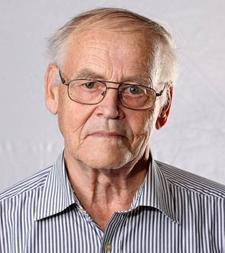Daniel Comboni
Comboni Missionaries
Institutional area
Other links
Newsletter
In Pace Christi
Haspinger Bruno
Bruno was born on 26 May 1940, at Tesido in Val Pusteria/Alto Adige (Italy). His parents owned a small farm and had nine children. Bruno was not the only one in his village to become a Comboni missionary. Four other young men from the same village entered Milland and became Comboni Brothers, one of whom was the artist and painter Bro. Johann Oberstaller. Bruno was very impressed by him and the other brothers he met in Milland.
After a brief postulancy, he began the novitiate at Josefstal on 2 February 1959, at the age of 18. He took first vows on 1 May 1961. On 18 March 1967, he devoted himself definitively to the Congregation by taking perpetual vows.
Bro. Bruno, together with Bro. Adolf Sailer, visited many schools and youth groups in the towns of the vast area of Ellwangen to speak to them of the missions and the missionary vocation of the Brother and not without success. Many young men entered as candidates and began their professional training in the new workshops. Some of them went on to the novitiate and became missionary Brothers.
Bro. Bruno gradually became the spokesperson of the Brothers and soon his influence on the events of the province in general greatly increased. He fought to have the Brothers receive a formation and have a position comparable to that of the Fathers, a technical formation or specialisation instead of theological studies, convinced that the Institute should not have “two classes of people”. He undertook the construction of workshops close to the new house of Josefstal. When the Josefinum seminary in Ellwangen was closed in 1981, he opposed its sale and sought to have it become the seat of the provincial superior.
He restructured the old house of Josefstal to use it as a youth centre. He also contacted the founder of the KIM (Kreis Junger Missionare/Young Missionaries Club), Fr. Hubert Leeb OFS.
The KIM was a new form of the Catholic youth movement of the time which also had the aim of directing some of the youth towards the priestly/ religious/missionary vocation. Several groups were formed in the area of Ellwangen. Josefstal became a well-attended youth centre with groups coming to it from all over the diocese.
Towards the end of the seventies, within the German Church and its youth pastoral, there emerged a social and political dimension which was also due to the influence of Latin American liberation theology. These themes were also discussed among the Combonis, especially in Brazil and Ecuador. Bro Bruno himself was very much aware of them.
As a result of this new sensitivity, Bro. Bruno began, in 1982, the Ellwangen Centre for Information and Training"; he changed its name, in 1999, to "World Solidarity Centre ". In the Josefinum seminary that was closed in 1981, an exhibition was set up on themes of international justice and a start was made to providing a library specialised in these themes.
In 1990, Bro. Bruno was assigned to the mission of Brazil and began his service in the diocese of Balsas. There he took part in founding an organisation for farmers, the ACA, an association of small farmers who opposed the large, corrupt landowners. Many friends, especially in the area of Ellwangen, supported Bro. Bruno.
In 200, the bite of a dangerous snake forced him to return to Europe and he was assigned to the community of Milland/Bressanone. In the meantime, the Xaverianum seminary had been closed. At the suggestion of Bro. Bruno, the building became a “House of Solidarity” for meetings and as a refuge for migrants and people on the margins of society.
After a period in Brazil from 2006 to 2008, cut short for reasons of health, he was appointed procurator of the DSP based in Ellwangen. In 2015, he returned to Milland.
His health problems worsened but Bro. Bruno was always enterprising and a source of ideas until March when all the members of the community were infected by the virus. Bro Bruno was taken to hospital with three other confreres and died there on 7 April 2021. On his desk he left the articles prepared for the 2022 Holy redeemer Guild Calendar, many photographs to be digitalised and other projects.
Even though he was never a member of a provincial council and never had any positions of great responsibility, except for one occasion when he was a delegate at the 1979 Chapter, and in his later years as vice-superior of the community of Bressanone, Bro. Bruno was involved in almost all the important decisions of the DSP over the past forty years. He was a source of new ideas and inspiration which he sometimes presented very directly, with little diplomacy, rather roughly and occasionally offensively, though he never bore a grudge. When he was convinced of something, he managed to get it accepted with no fear of disagreement or opposition. In this he was similar to Daniel Comboni – despite all the differences – since he, too, was a tireless fighter for a better world, took the side of the oppressed, clashed with authorities and sometimes found himself caught in a vice of contradictory opinions.
(Fr. Reinhold Baumann mccj)

